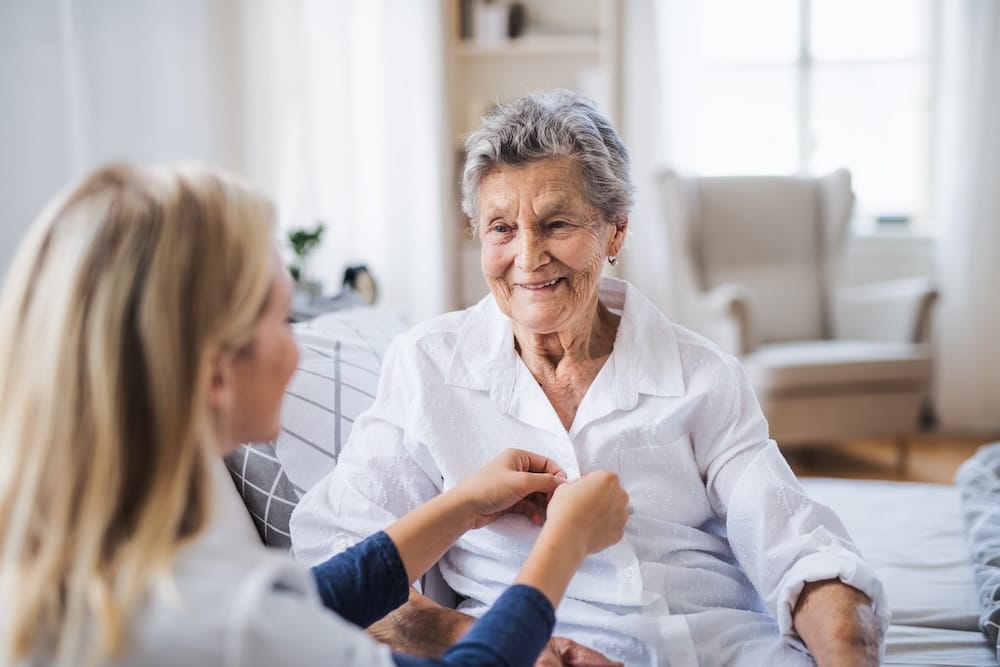Americans 60 and older living with an intellectual or developmental disability occupy a unique community within the I/DD and senior-care field, and one that remain largely overlooked by the current system.
Currently numbering an estimated 1.4 million adults—and set to grow in the coming decades—they deserve a unique set of facilities, programming, and consideration when creating plans for support. As Chief of Programs at CP Unlimited (CPU), an organization supporting adults with disabilities and others seeking housing, there are immediate and long-term strategies that can help providers like ours address the specific needs of this expanding population.
Presently, there are no facilities explicitly for older adults with disabilities and this must change. Nursing homes and sub-acute care settings need to be integrated into the landscape of offerings to address their complex medical and behavioral needs.
Further, the majority of existing facilities accommodating individuals with I/DD lack specialized staff training. Nurses and staff caring for seniors with autism, Down syndrome, cerebral palsy, and other disabilities require nuanced instruction and devoted time to support sensory issues, non-verbal communication including the use of devices like picture boards, and behavioral supports in a compassionate and skillful manner. Without this instruction, we run the risk of providing a lower quality of healthcare and deleterious outcomes for these seniors.
For seniors with disabilities living independently or in supported housing, a day program is a central part of their daily life and identity. Within these settings, the use of TEAMS for live classes and events and services like KIBU for on-demand lessons can have beneficial effects on mood and engagement, alongside in-person activities.
However, as they age, we find they grow less interested in the typical day program environment, which is fitting as the system is designed for a steady influx of younger participants as they age out of traditional school settings.
CPU recognized the growing need to support aging individuals in day program settings and responded by opening a senior division at the Carmen Aquilone Day Program in Brooklyn. While the initiative has shown mixed success, it highlights a critical and emerging challenge: Most existing day programs were originally created for lifelong participation rather than retirement. This means there is a gap in services for those experiencing the effects of aging, and therefore critical issues like physical and cognitive decline, dementia (particularly common among individuals with Down syndrome), mobility challenges, sensory loss, and chronic health conditions that require adaptive supports, might not be fully addressed.
To meet these evolving needs, it will be up to I/DD agencies to develop innovative models within existing day programs, such as:
- Senior clusters or dedicated “retirement rooms” with slower-paced activities
- Community partnerships that provide meaningful engagement outside traditional program walls
- Intensive staff training on aging-related conditions, dementia care, and end-of-life planning
Parallel to the work of non-profits, more can be done at the local and state level. Senior programming, already minimal from city organizations, is barely non-existent for older adults with disabilities. Additional attention and offerings from arts and cultural institutions will help add to the list of choices. One small fix: adding a height-adjustable adult changing table in large public venues will make events more accessible for people with disabilities.
On the administrative side, deepened assistance with social security disability benefits would help make sure that this population struggles less, and greater outreach for Medicaid renewals can safeguard that people won’t fall through the cracks. Partnering with organizations like CP Unlimited are key in reaching this often-overlooked group.
For seniors with disabilities, life can frequently be challenging. By creating more focused, person-centered residential and program options, with investment from the state, we can close existing gaps and ensure quality of life for aging individuals with I/DD while respecting their changing interests and abilities.

Sebastian Chittilappilly
Sebastian Chittilappilly is a seasoned healthcare executive with more than 15 years of leadership experience in nonprofit operations, program development, and organizational management. As Chief Program Officer at Constructive Partnerships Unlimited, he oversees a $270M+ budget, leads 2,000+ employees across 200+ locations, and drives operational excellence through efficiency systems, compliance improvements, and innovative service delivery for individuals with developmental disabilities.
Previously, he transformed Daybreak Independent Services from a startup with fewer than five clients into a thriving $8M organization serving over 250 individuals. Committed to public service, Sebastian served as a Voting Board Member and Chair of the Membership Committee for the New York State Rehabilitation Council and currently serves as Board Member of Bronx Community Board 8 and Chair of its Budget Committee. Sebastian holds advanced degrees in Pharmacy Administration, Medical Biotechnology, and executive training from Harvard’s Kennedy School of Government.








2 thoughts on “Seniors with Disabilities: Caring for a Unique Population ”
Comments are closed.